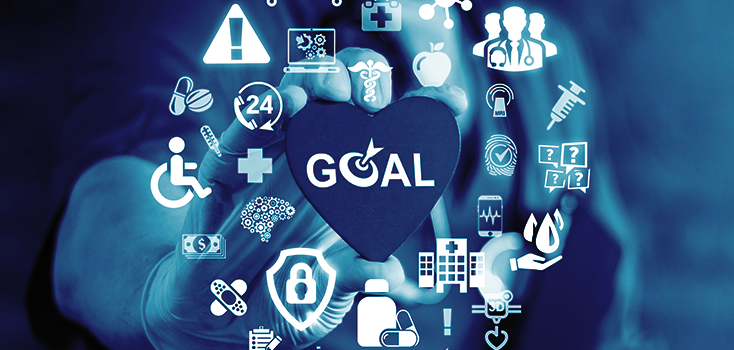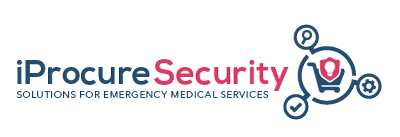
Quality Indicators in Emergency Medical Services for Patient Safety
Author: Andres Castillo
Data: 15.09.2019
It is possible that the concept of quality has been one of the main references for projects and evolution of most of the managers of companies and public and private institutions. And it is so, because the quality demand of society has increased exponentially in recent years. Today, the citizen of the 21st century, primarily uses that reference for the consumption of goods and services that he needs. Taken to the health field, this means that it is no longer enough to provide patients with efficient health care and with the most appropriate human treatment, but also that the client must be satisfied with the care received. You should consider it according to your point of view, your own assessment.
This has led some private health services companies, and even some publicly funded emergency services, to establish management policies aimed at adapting to these new rules of the game, to that new objective. These management measures are being based on the establishment of control systems that allow the managing body a precise knowledge of their effectiveness and effectiveness. Within health care, the field of urgency has been an area where the application of these measures has always been complicated and, in general, little accepted by the different actors in that sector. The wide variability of the services and the assistance processes that occur in this field has made it become a land that has not paid for this type of experience.
If this has already been difficult at the hospital level, it seems much more complicated for out-of-hospital emergency care systems, where problems such as geographic dispersion, the difficulty of quality assurance or assistance are linked to the intrinsic variability of the emergency fact that the assistance process ends in different companies.
As an example we will consider here the certifications of quality of the two biggest emergency services in Madrid: SUMMA 112 which belongs to the regional government, and SAMUR which is managed by the Municipality of Madrid city.
SUMMA 112
SUMMA 112 is fully committed to quality and continuous improvement. That is why it has a Quality Management System implemented and certified under UNE EN ISO 9001: 2015 and UNE 179002: 2011. In order to promote compliance with the SUMMA 112 Quality Policy, all its departments, services, units and processes work together with the Quality Department. SUMMA 112, aligned with the strategy of the Spanish Ministry of Health and within its commitment to excellence and continuous improvement, has in place a quality management system. For this, SUMMA 112 takes into account the needs and expectations of its users and citizens in general, as well as other direct or indirect stakeholders, such as universities, suppliers, etc. Always with the aim of guaranteeing citizens the provision of the best services, with a sufficient degree of satisfaction and adapted to their needs. The SUMMA 112 Quality Management system is based on the UNE EN ISO 9001: 2015 Standard. In its Quality Management System, it should be noted that SUMMA 112 has among its priorities the preservation of the Environment and the life cycle, and also has an environmental management system based on the UNE EN ISO 14001: 2015 Standard. The fact of having a Quality Management system has facilitated the implementation of the Environmental Management System in an alienated way. In summary, to support the Quality Management System and ensure compliance with the Policy in this area, SUMMA 112 has a Quality Department. In relation to Quality and as a body for the participation of professionals in the Quality Management system, SUMMA 112 has the Quality Commission. SUMMA 112 is certified in the UNE EN ISO 9001: 2015 Quality Management Standard and in the UNE 179002: 2011 Standard for Health Transportation. For this, SUMMA 112 overcomes internal audits and annual external audits, the latter performed by the certification body. In these audits, a review of both the processes and documentation and of the daily work operations is carried out and, as a result, improvements are made that are implemented with the objective of improving the service provided to citizens every day. It is only possible to obtain certification if the rigorous standards set by the Standards are exceeded, so the user can count on the confidence that SUMMA 112 has satisfactorily exceeded these standards.
For the maintenance of certification, SUMMA 112 annually contracts External Audits by the certifying entity and, as an essential requirement, it runs the annual internal audits carried out by professionals of SUMMA 112 or SERMAS itself. The main objective of audits is to determine the conformity or nonconformity of the management system with the specified requirements. SUMMA 112 periodically carries out self-assessments under the European EFQM Excellence model, a tool through which a significant number of action plans are obtained that allow the organization to be improved. In addition to the essential work in terms of quality management, the quality department has the following responsibilities in Patient Safety:
- Follow up and implement the Patient Safety Strategy and risk management by participating in the Clinical Safety Commission.
- Manage the notification system for patient safety risk incidents.
- Participate in the clinical safety commission.
SAMUR
On December 12, 2017, the Chamber of Madrid certifies the emergency management and incident response system of SAMUR – Civil Protection for its health service delivery activities in emergency, rescue and risk prevention situations. The implementation of an Emergency Management System, in accordance with the international standard ISO 22320, means that SAMUR Civil Protection has designed and implemented the optimal processes to execute the best intervention and minimize damage in case of emergency. Which means that the service can correctly manage emergency information and achieve coordination and cooperation of all the agents involved in the response, this allows a more effective response and achieve the ultimate goal of saving lives. Total quality is an integrated strategy in daily management, monitored through activity and result indicators with 17 internal audits, based on the Quality Management System according to Standard UNE-EN-ISO 9001, pillar of the Service since 1999. In the last external recertification audit carried out on October 16, 17, 18, 19 and 20, 2017, the following relevant positive aspects were highlighted:
- The new resources incorporated by the organization for monitoring the system.
- Control over the provision of its services, both assistance and training.
Since its inception, SAMUR-Civil Protection has been concerned that the environmental impact of its activity was minimal. Since 2005, it included among its priority objectives the compatibility of the provision of its services with an environmental management system that measures, objective and minimizes day-to-day unwanted environmental effects. This principle is one of the inspiring foundations of our environmental policy.
In July 2008, the Madrid Chamber of Commerce certified and verified the implementation of the Environmental Management System according to the UNE-EN-ISO 14001: 2004 standard and the EMAS (European Eco Audit System) Regulation, which guarantee compliance with all environmental legislation. From this moment on, environmental management becomes part of all the decisions taken in the service and progressively advances towards greater environmental protection and pollution prevention. On December 15, 2017, the certification committee has decided to maintain certification number 1.1441.08, according to UNE-EN ISO 9001: 2015 and validate environmental statement M.1442.08, according to UNE-EN ISO 14001: 2015 and EMAS. In its first evaluation, in 2009, SAMUR Civil Protection achieved the prestigious seal of Excellence 500+, the highest certification granted by the Club of Excellence on behalf of the European Foundation for Quality Management (EFQM), in recognition of quality, rigor and commitment to provide the service to Madrid. Subsequently, in 2012 and July 2014, the evaluators of the SGS certifying company revalidated this level, recognizing the progress in continuous improvement, increasing its score to one of the highest in the country.
Recommendations
The EMS systems in each country have many features in common but there is no standard European system to compare them. The systems are delivered by a variety of providers and funded with different funding mechanisms. Organisation and logistics, particularly of dispatch, triage and prioritisation, are critically important and further development is necessary to achieve a standardised approach to EMS in the expanded EU and respect to third countries. The variation and diversity of system designs is the main obstacle to coordinating EMS systems. Comparative studies usually focus on one specific aspect of the system, such as staffing, costs or clinical outcomes. The existence of a common set of Certifications of Quality for all EMS Service in Europe could be a solid instrument to make the communication and coordination among different countries and regions easier to achieve.
References
Literature
Corral, E., Casado, I., & Suárez, R.M. (2010). Gestión de calidad del Servicio de Emergencias SAMUR-Protección Civil. Anales del Sistema Sanitario de Navarra, 33(Supl. 1), 107-121.
Charles D. Shaw, Oliver Groene, Daan Botje, Rosa Sunol, Basia Kutryba, Niek Klazinga, Charles Bruneau, Antje Hammer, Aolin Wang, Onyebuchi A. Arah, Cordula Wagner, on behalf of the DUQuE Project Consortium, N Klazinga, DS Kringos, K Lombarts, T Plochg, MA Lopez, M Secanell, R Sunol, P Vallejo, P Bartels, S Kristensen, P Michel, F Saillour-Glenisson, F Vlcek, M Car, S Jones, E Klaus, P Garel, K Hanslik, M Saluvan, C Bruneau, A Depaigne-Loth, C Shaw, A Hammer, O Ommen, H Pfaff, O Groene, D Botje, C Wagner, H Kutaj-Wasikowska, B Kutryba, A Escoval, M Franca, F Almeman, H Kus, K Ozturk, R Mannion, OA Arah, A Chow, M DerSarkissian, C Thompson, A Wang, A Thompson, The effect of certification and accreditation on quality management in 4 clinical services in 73 European hospitals, International Journal for Quality in Health Care, Volume 26, Issue suppl_1, April 2014, Pages 100–107.
Udo Nabitz, Niek Klazinga, Jan Walburg, The EFQM excellence model: European and Dutch experiences with the EFQM approach in health care, International Journal for Quality in Health Care, Volume 12, Issue 3, June 2000, Pages 191–202.
Rooney, A. L., & Van Ostenberg, P. R. (1999). Licensure, accreditation, and certification: approaches to health services quality. Center for Human Services, Quality Assurance Project.
Websites
https://www.comunidad.madrid/hospital/summa112/profesionales/calidad (retrieved on 14.9.19)

